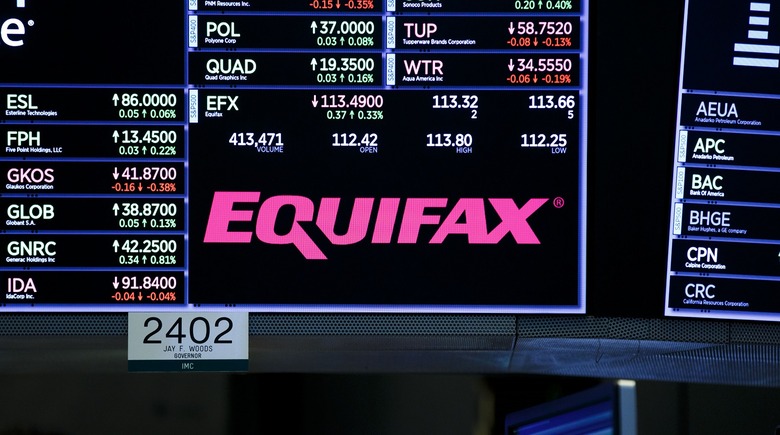Equifax On The Hot Seat For Running Out Of Data Breach Settlement Funds
Even when making restitution to victims of its massive 2017 data breach, Equifax still can't seem to avoid a mess. The credit reporting agency is now attracting a ton of scrutiny after the Federal Trade Commission revealed in an urgent announcement to the public that the pool of Equifax settlement funds used to pay cash claims to victims is quickly running dry. And that victims who step up to file a claim going forward should probably just go ahead and pick a non-cash alternative.
You may be reading that and thinking — wait, didn't Equifax agree to a $700 million settlement with the FTC because of the breach of Equifax servers that saw hackers extract more than 200,000 payment card numbers and expiration dates? Well, yes, that's correct. Moreover, up to this point, payments to victims of up to $125 had been touted as part of the settlement, along with an alternate offer of free credit monitoring. But, unfortunately, the part of the overall settlement comprised of a pool of money that will be used to make the direct cash payments to victims is only $31 million.
"This is unacceptable," one person wrote in a comment on the FTC's post at the link above. "The court and Equifax knew there were 147 million claimants. Why offer $125 per claim and set aside only $31 million? Did someone forget to do the math?"
For its part, the FTC is stressing that it thinks the free credit monitoring offered as part of the settlement is worth more than the cash anyway. That's because victims will be able to get free monitoring of their credit report at all three national credit reporting agencies — and the offer even includes up to $1 million in identity theft insurance and identity restoration services.
However, even that is drawing criticism. Another commenter on that FTC post noted that "my data has been compromised numerous times and I've received numerous free credit monitoring compensations."
As we previously noted, victims of the Equifax data breach have a number of options they can request via the settlement website, including the direct cash option, or free credit monitoring. Alternatively, if they spent time recovering from the episode or experienced a money loss attributable to it, they can request up to $20,000. You don't have to provide documentation to support a claim for $125, but you do for the $20,000.
All that said, Electronic Privacy Information Center president and executive director Marc Rotenberg told The Washington Post "there's something a little askew" over consumers thinking $125 was a possible offer at first, while officials "now have to race around saying, 'Look at the fine print.'"
